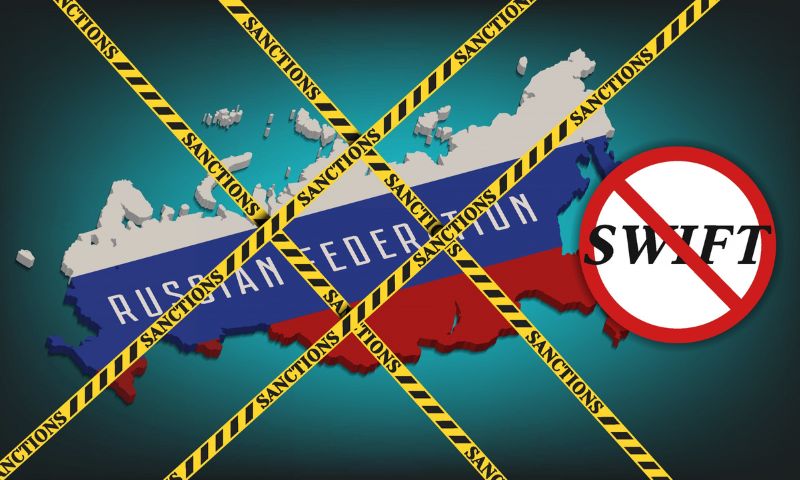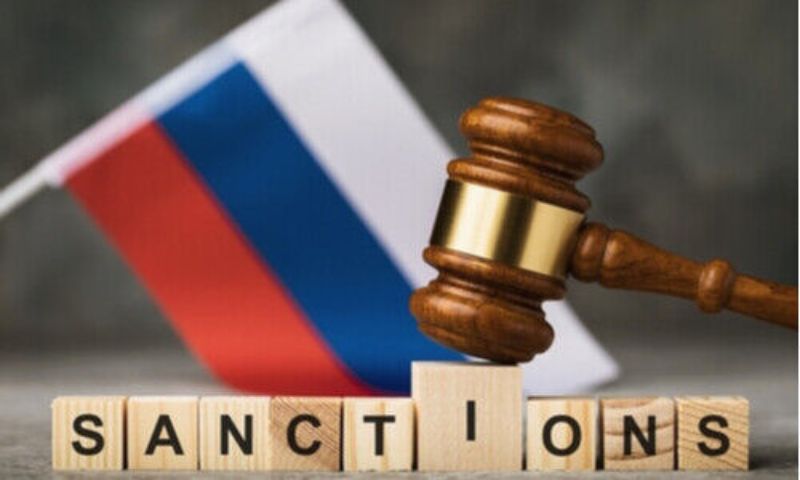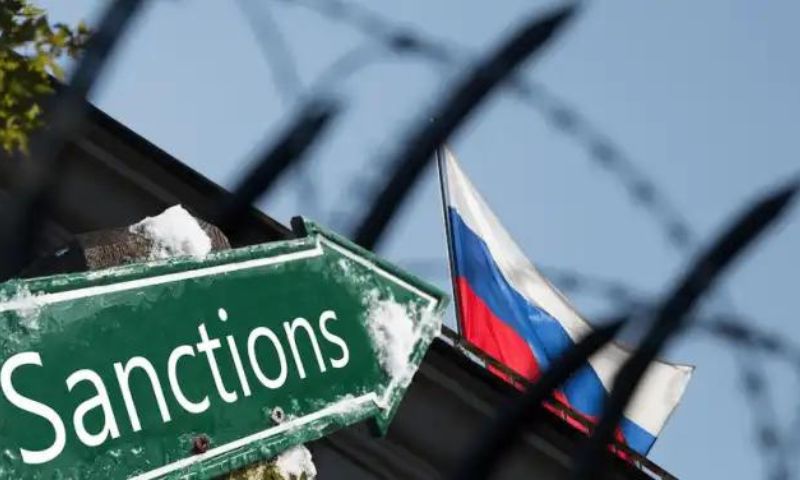Financial Impact of War and Sanctions: you hear it on the news, it pops up on your feed, but what does it really mean for the global economy? Let’s dig into the gritty details. Wars rumble nations not just with bombs and battles but with devastating economic punch-outs, too. I’m zooming in on the cold, hard cash side of conflicts and the heavy sanctions that tag along. From GDP taking a dip to trade getting snarled up, we’re covering it all. Ready to see how energy markets spiral and countries cough up more for defense while trying to glue their economies back together post-conflict? Stick with me, as we connect the dots between the chaos of war and your wallet.
Assessing the Economic Shockwave: GDP and Trade Disruptions
The Toll of Sanctions on National Economies
War hurts a country’s money health, known as GDP. GDP is like a nation’s money report card. When countries fight, some nations may say, “No trade with you!” This act is called sanctions. These rules make it very hard for a country to buy and sell things with other places.
What happens to GDP when sanctions hit? Well, it goes down. A country can’t sell abroad, which means it makes less money. Also, it can’t get stuff it needs, like parts for machines or medicine. This can make life tough for people in that place.
Sanctions are not just hard on the country they target but on others too. With less trade, jobs can be lost and factories might close. Prices for things often go up. People in other countries feel the pinch, buying more expensive stuff and possibly losing their jobs.
Countries don’t agree on sanctions. Some think they stop fights. Others say they just hit regular people, not leaders. Yet, they still use them, hoping to avoid war. It’s tricky. There’s no easy answer to if sanctions are the right tool.
Trade Disruptions and Their Global Ripples
When war breaks out, trade can take a big hit. Roads and docks might get wrecked, making it hard to move goods. Ships and trucks stay empty, and shop shelves get bare. Countries that used to trade lots might stop or trade less. This messes up plans and budgets for all kinds of businesses.
Trade disruptions shake markets around the world. If a country is a big seller of something, like oil, and suddenly can’t sell, prices might zoom up. Other places have to find new partners fast, which can be costly and tough.
Some folks lend a hand with money sent home, called remittances. This cash is vital for families in war-hit places. But with trade down, jobs are scarce, and there’s less cash to send.
Now, war can make money less worth, known as currency devaluation. Imagine your $1 buying less bread than before. That’s tough on families trying to buy what they need. And folks from outside might stop investing, scared they’ll lose money. It’s risky with things changing so fast.
The stock market hates surprises from war. Stocks might drop as investors run away from risk. But some stocks might do well, like companies that make war stuff.
Everyone hopes for peace, so goods can flow again. But the scars from trade disruptions stay for a long time. Roads and docks need fixing. Trust has to grow again. And all this takes lots of work and money.
War changes trade in big ways we can’t miss. It’s a domino effect, hitting one part and then spreading out. Sanctions can protect, but they can also harm, like a double-edged sword. Helping folks out while keeping money safe is a hard dance to manage. But it’s key to try for a better, peaceful future for all.

Energy Markets in Turmoil: The Cost of Conflict
Wartime Oil Price Fluctuations
War sends shockwaves through the energy markets. Threats and attacks can halt oil flow. This can make oil prices spike. These spikes hit pockets hard. Folks everywhere feel the pinch when they fill their tanks. Companies pay more to move goods. This pushes up prices of just about everything.
The Long Reach of Embargo Policies on Energy Reliance
Sanctions restrict trade and hurt economies. They aim to force change by squeezing a country’s cash. This can shift energy trade routes. Nations may seek new allies for oil. This can lead to long and costly changes. It also ramps up political tensions and reshapes alliances.
Trade disruptions due to war can seriously shake the global economy. When conflict breaks out, moving oil around can get tough. Embargos hit hard. Nations may stop trading with others. Some countries have a lot of oil to sell. If they can’t sell it, prices everywhere can jump.
When we think about the economic consequences of military conflicts, the oil market is a key factor. War can cut off oil supplies. This is big because oil powers most of our world. Cars, trucks, and factories all need it. When supply drops, prices go way up. Everyone from big businesses to families buying groceries feels this rise.
But it’s not just about high prices at the pump. The war effect on oil prices changes a whole lot more. Airline tickets can cost more. Heating our homes in winter gets pricier. These are the sorts of trouble a spike in oil prices can bring. And they can stick around even after guns go silent.
Embargo effects on trade are super strong, too. A nation might not get the fuel it needs. This makes it tough for them to keep their economy running. Or to defend themselves. Allies may have to chip in. They may give more money, oil, or help to keep that nation on its feet.
Countries going through this turmoil often face a hard climb back. Reconstruction costs post-conflict can be huge. The damage done to oil facilities and pipelines takes lots of money and time to fix. Nations have to think about defense spending and economy. They must be sure they can protect themselves without going broke.
Help comes in many forms during these times. Humanitarian aid funding can keep people warm and fed. International aid and sanctions also play a part. They can cut off funds and tools for war. Or they can help rebuild what’s lost. Sometimes, they do both at once.
In war-hit places, remittances in war-torn countries can be a lifeline. Families send money home to help loved ones survive. This money can even trump the loss from trade freezes. It can help families eat, find a safe place to live or get much-needed medicine.
Understanding the ripple effects of energy disruptions helps us get why oil is so tied to peace and conflict. From big nations to small towns, the flow of oil can steer the fate of millions. Knowing this, we keep a close eye on tanks, talks, and trade routes alike.
From Bullets to Banknotes: Defense Economics and Reconstruction
Defense Spending and Its Macroeconomic Impact
When countries spend on defense, it shapes their economy big time. More tanks and soldiers can mean less for schools and roads. A country at war spends heaps on defense. This takes cash away from other parts we need for a good life.
Think of it like this: if you have $10, and you buy a toy for $8, you can’t get that $2 lunch you like. Defense is the toy, and lunch is stuff like health care. Spending on defense also means jobs making weapons. But the fear is, if we make too many, what happens when peace comes?
During war, folks lose jobs in shops or factories that close due to bomb scares or curfews. But factories that make war stuff hire more people. So, it’s a big switch in how folks work. This messes with how much stuff we make and sell to the world. It can make our money worth less. Prices for things rise, which is called inflation. It’s like your doughnut costing $1 and then suddenly it’s $2. Not fun.
Trade with other lands can stop, too. If your friend doesn’t like how you play, they won’t trade their lunch with you. Countries do the same. They stop trading if they’re fighting or disagree. This can hurt all of us because we love stuff from other places, like toys and fruits.
Post-Conflict Reconstruction and Funding Mechanisms
After a war, places need fixing, like homes that got wrecked. Fixing all this costs a lot. Countries often need help paying for the rebuild. Think of it like your baseball card collection getting ruined. You might need pals to help get it back. Countries need friends, too.
Aid comes from richer lands, groups like the United Nations, and banks that lend money. They help fix schools, roads, and power lines. It takes years and loads of cash to make everything okay again. We need good plans to make sure the money is not wasted. Helping after war brings hope to folks and can stop more fights from starting.
Countries that were fighting also get help from their family abroad. They send money home, called remittances. This helps their families eat and live better. It’s like your grandma slipping you a $10 bill.
When wars end, countries might still not trust each other. They have to learn to work together again. This helps trade start back up, and ships move with goods again. As friends come back, things get built, and old ruins turn into new shops. Peace makes money move, and life gets a bit better for everyone.
In all, war costs a ton, not just in money but in what we miss out on. The fix also costs a lot, but it’s the hope we need after a storm. We have to remember, defense and rebuilding touch us all, right down to our wallets and dinner tables.

The Human and Monetary Cost of War
Investment and Insurance Challenges in Conflict Zones
War turns lives and lands upside down. It scares off those looking to invest. It can seem impossible to back a business in a place where bombs may fall. But some do take that risk. They bet on future peace and profit. Yet, the cost to guard this gamble is sky-high. Insurance in conflict zones isn’t cheap. This is because the chance for loss is greater. Not just from fights, but theft and damage too. Companies must think hard. Is the risk worth the reward? Some stay, many go. This choice can shape the zone’s fate. Will money flow in or out?
Aid pours into war-hit areas often. It aims to fix broken parts. Roads, schools, homes. This help is a lifeline. Still, it’s just a start. Once the dust settles, the real test begins. How to rebuild not just buildings, but also lives and jobs? This is where the big picture comes in. It means training folks, making jobs, and getting shops to open again. Plans are made, but they cost a lot. It’s a bill most can’t foot alone. This is where friends from afar step in. Countries, charities, and groups offer cash and care. They help folks get back on their feet. The hope is for a stronger place to emerge from the ruins.
Often, people in these zones send money home. It’s a help that means so much. In times of war, this can be a lifeline. It keeps families fed and kids in school. When banks close and cash is tight, these funds mean more than ever. It’s money that doesn’t come with strings. It goes straight to those who need it most.
The market feels the fear war brings. Stocks hate doubts. War brings plenty. So prices can swing with every headline. Often, they dip hard when news is grim. Then later, they may rise as peace talks start. It is a dance driven by fear and hope.
Money is shaky in these times too. The worth of cash can drop fast. You need more bills to buy the same bread. This hurts everyone. It’s like a tax no one voted for. People get less for what they have. Saving becomes a game no one wins. Inflation robs people one day at a time.
In short, conflict leaves deep marks. Not just on the land but on wealth too. Getting things to grow in such soil is tough. But with grit, help, and care, it’s not out of reach. It’s a slow walk back, full of traps and snares. Yet, the human spirit can beat even this. It rebuilds, renews, and often, rises again. Through the dirt and ash, hope can bloom.
The Role of International Aid and Reconstruction in War-torn Economies
When wars end, the call for aid rings out. The world’s eyes turn to those in need. Money, food, and tools come in. It’s a surge to mend a broken land. Yet this help is just part of the tale. It’s the seed, not the fruit. The bigger task is to craft a plan. One that will last and stand strong. Roads, laws, banks, and schools must rise again. It’s a puzzle with many parts. Each one key to a full fix.
Global friends can pledge funds. These are sums to soothe the sting of war. But where it goes is vital. It must reach the right spots. Too often, aid gets lost. It fades in a maze of needs and wants. The goal is clear, though. To create a space where peace pays more than war. Where kids learn, not fight. Where a person’s worth is in their work, not their arms. This is no small feat. It’s a climb steep and long. But history shows it can be done. With the world watching, helping hands, and hearts set on healing, war’s wounds can heal.
In this post, we explored how wars shake economies, from trade to energy markets. We saw how sanctions hit nations hard, causing global trade issues. Then, we looked at oil and gas upheaval and how embargoes can change who relies on whom. We also covered big war spends and the huge task of rebuilding after a conflict ends. Finally, we tackled the tough world of money in war zones and how outside help plays a part in healing these areas.
I think about these things a lot. Wars cost more than we can count. They hurt people and they make countries’ money problems serious. When we see prices go up at the pump, or hear about countries struggling, it’s often tied to these big fights across the globe. I hope my words today help you get why this stuff matters. Next time you read the news about a far-off conflict, remember – its reach is wide, touching economies and lives everywhere.
Q&A :
How does war affect the financial markets globally?
The onset of war can lead to volatility in financial markets as investors respond to heightened risks and uncertainties. This can result in fluctuations in stock prices, commodity markets, and foreign exchange rates. The defense sector may experience a surge, while other sectors could suffer due to supply chain disruptions and decreased consumer spending.
What are the economic consequences of imposing sanctions on a country?
Economic sanctions can exert significant pressure on a country’s economy by restricting its trade capabilities, limiting access to international financial systems, and deterring foreign investment. This often leads to a decrease in GDP, inflation, currency devaluation, and potential shortages of goods. Sanctions can also impact global trade partners and industries related to the sanctioned nation.
In what ways do sanctions influence global economic relationships?
Sanctions disrupt established economic relationships by forcing countries and businesses to seek new trade partners and resources. Long-term sanctions can lead to changes in global trade networks and alliances, potentially resulting in shifts in economic power balances and the creation of alternative systems for international financial transactions and trade.
How does war impact national debt and fiscal policy?
War generally leads to increased national debt due to higher government spending on military and defense without corresponding increases in revenue. This can result in large budget deficits and necessitate changes in fiscal policy, including tax increases or cuts in other government spending to finance war efforts.
Can financial sanctions lead to economic isolation?
Financial sanctions, particularly those targeting a country’s banking sector and access to international finance, can lead to economic isolation. This isolation hinders a nation’s ability to engage in international trade, access capital markets, and benefit from global economic growth, often leading to long-term economic damage.




